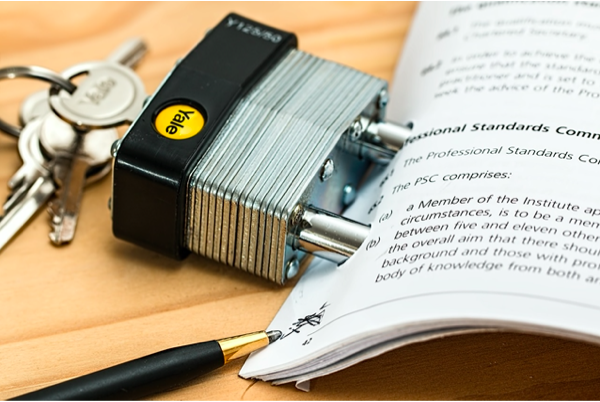What Are The Different Types of Deeds?

Property owners or holders are said to have a "title" to that property. How you choose to hold the title is among the most crucial choices that must be made. It determines your insurance coverage, but it can also have serious legal and tax repercussions. Hence, there are several ways to hold the title of investment property.
What are Deeds
Deeds are legal documents that support the ownership of a property. Deeds also govern the tenure of your property.
The property in question could be either tangible; like land or buildings, or intangible; like a right or privilege, a rent charge, or something similar.
Moreover, deeds are official legal documents that are used to transfer property in real estate deals.
In the majority of Florida deeds (as well as those elsewhere more relevant), the owner of the property assumes the role of the grantor and gives the title to the grantee in exchange for money or another form of consideration.
Furthermore, deeds are important for the inheritance of properties.
Expert probate lawyers in Orange county stated that a deed will prove that the deceased owned the properties before they can be inherited.
For the transference of properties from the deceased to the beneficiary, probate lawyers will also be needed.
Probate lawyers will guide you in identifying estate assets and distributing the assets and inheritances.
The role of probate lawyers is determined by the decedent's assets. The presence or absence of a last will and testament at the time of death is also an important consideration.
In the absence of a will, beneficiaries file lawsuits and sue for what they feel they are owed.
Types of Deeds
There are six different types of deeds that buyers and sellers in the real estate sector frequently encounter. The specifics of each type of deed are described in the following list below.
1. Quitclaim Deed
When transferring property between close friends, family members, or even ex-spouses, a quitclaim deed is used. This is because a quitclaim deed provides the grantee with less legal protection than other types of deeds.
A quitclaim deed does not confirm a grantor's ownership of the property, and sometimes grantors willfully deed property that they do not have the right to sell. Additionally, quitclaim deeds do not guarantee the absence of title issues like tax liens or easements.
Quitclaim deeds require a high level of trust and are recommended for people who know each other very well because there are no legal safeguards against liens or encumbrances. This kind of deed is also suitable when the grantor is unsure of the status of the title and whether or not it is free from flaws.
2. Grant Deed
A grant deed may also be referred to as a limited warranty deed or a special warranty deed. It has one significant exception– it only warrants the time the seller owned the property. It offers all the same protections and guarantees as a general warranty deed.
Although the grant deed ensures that the seller is the sole owner of the property, it does not provide the buyer with any legal protection against any title flaws, such as:
- Error in public records
- Improper signature
- Undisclosed lien
- Boundary dispute
The buyer would be responsible for handling any title claims from people who had liens on the property under an earlier owner and would not be able to take the seller to court in such cases. However, if the buyer had purchased title insurance, the expense of defending the title would probably be covered by the insurance plan.
3. General Warranty Deed
A general warranty deed is frequently used in residential real estate transactions. It ensures that the seller has the full legal right to sell the property and that it is absolutely free and clear of all debts, liens, and other encumbrances.
This kind of deed offers the grantee the greatest protection. It gives access to the legal system in the event that debt goes unpaid, or a problem with the deed arises. The seller, not the buyer, is financially liable if such a debt arises after the sale.

4. Bargain and Sale Deed
A bargain and sale deed contains a warranty that the grantor has legal ownership of the property. But it does not guarantee that the property is free from liens or other claims. This is a bargain and sale deed without covenants.
This deed is superior to a quitclaim deed from the grantee's point of view. However, it falls short of a warranty deed. A bargain and sale deed with covenants, which resembles a special warranty deed, is one in which one or more additional guarantees are expressly stated.
Homes sold at foreclosure typically come with a bargain and sale deed. This type of deed gives the buyer no protection against liens or other claims against the assets. So, before buying a foreclosure, some buyers conduct a title search, buy title insurance, and hire a real estate attorney to reduce the risks associated with a bargain and sale deed.
States like Nevada, New Jersey, New York, Oregon, Rhode Island, and Washington permit bargain and sale deeds.
5. Special Warranty Deed
The most frequent use of special warranty deeds is in commercial real estate transactions. Different states have different names for special warranty deeds, including covenant deeds, grant deeds, and limited warranty deeds.
Only the time the seller had possession of the property under a special warranty deed is covered by the guarantee. Defects in a free-and-clear title that might have existed prior to the seller's ownership are not covered by special warranty deeds.
As a result, the grantor of a special warranty deed is only accountable for any debts, issues, or other encumbrances to the title that they caused while owning the property. Any issues brought on by the previous owners are taken over by the grantee.
6. Mortgage Deed
A mortgage deed is a legally binding contract that underlines the agreements of a mortgage and puts a lien on the asset till the lender repays the loan in full.
If the loan is not repaid, the lender is safeguarded by the mortgage deed, which grants them a security interest in the property for which they provided the borrower with financing.
The mortgage deed may allow the lender the legal right to foreclose or seize ownership of the property, usually after litigation, if the borrower defaults on the loan.
The lender—typically a bank—and the property buyer will negotiate the terms of a mortgage loan in a real estate transaction, including the loan's size, its maturity date, its interest rate, and the monthly payment.
According to the deed, if the prospective homeowner violates the terms of the mortgage loan, the lender has the right to seize possession of the home and sell it to recoup any financial losses from the loan.
Conclusion
It is important that before buying a property, there is a deed. This is because a deed is used to transfer ownership of a property or asset from one person to another. Also, a deed is a proof that the seller is the real owner of the property.
In addition, you must observe the type of deed attached to that property. After reading this article, you should be familiar with the various types of deeds and what they entail.
